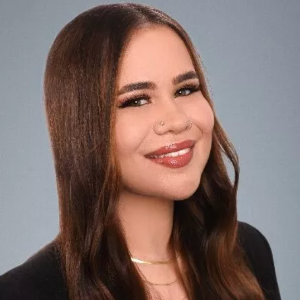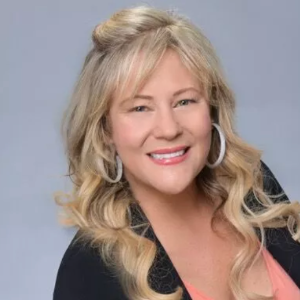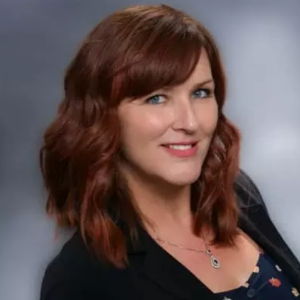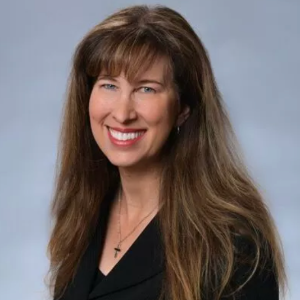






Covenant Hills Women's Treatment Center
This provider's information has been quality-checked by Recovery.com's Research Team for accuracy and completeness, including center verification through appropriate third-party organizations.
Treatment Focus
This center treats primary substance use disorders and co-occurring mental health conditions. Your treatment plan addresses each condition at once with personalized, compassionate care for comprehensive healing.
Primary Level of Care
Offering intensive care with 24/7 monitoring, residential treatment is typically 30 days and can cover multiple levels of care. Length can range from 14 to 90 days typically.
Treatment Focus
This center treats primary substance use disorders and co-occurring mental health conditions. Your treatment plan addresses each condition at once with personalized, compassionate care for comprehensive healing.
Primary Level of Care
Offering intensive care with 24/7 monitoring, residential treatment is typically 30 days and can cover multiple levels of care. Length can range from 14 to 90 days typically.
Provider's Policy
We Are In Network With the Following Carriers including Anthem Pathways:
Covenant Hills Women's Treatment Center
Covenant Hills Women's Treatment Center
About Covenant Hills Women's Treatment Center
Covenant Hills Treatment Center (Covenant Hills) provides faith-based and traditional treatment tracks for women with addiction and co-occurring mental health conditions. Covenant Hills’ optional faith-based Christian track incorporates biblical teachings and prayer, proven evidence-based therapies, the 12 Steps, individual and group therapy, and relapse prevention therapy. Their traditional non-Christian program uses the 12 Steps and welcomes clients of all backgrounds.
Proven Treatments for Co-Occurring Disorders
Covenant Hills treats addiction and co-occurring mental health conditions in a 60-day residential program, day treatment, intensive outpatient, and an aftercare program. They focus on women’s unique situations and needs, like motherhood, sexual assault, pregnancy, body image, and more. Women can form strong friendships and benefit from a safe space to discuss and share women-specific challenges. Covenant Hills provides cognitive behavioral therapy (CBT), dialectical behavioral therapy (DBT), trauma therapy, pastoral counseling, and family therapy throughout their levels of care.
Gender-Specific Treatment Programs
Covenant Hills’ women’s center in Dana Point welcomes up to 14 women. After an initial assessment, Covenant Hills arranges detox with an affiliated medical facility before women return for residential treatment. After residential treatment, women can move into day treatment with housing available at Covenant Hills’ Orange County sober living homes. Their intensive outpatient program (IOP) offers 3 hours of clinical and spiritual care Monday-Friday. Clients can live at home or in sober living homes during IOP.
Optional Christian Recovery Track And Thorough Aftercare
Covenant Hills’ Christian recovery track includes daily devotionals, pastoral counseling, and time for prayer and meditation. Clients in all programs can enjoy nutrition and health education, Gorski relapse prevention therapy, experiential activities, and off-site equine therapy led by one of their marriage and family therapists. Covenant Hills’ aftercare offerings include continued anger management groups, anxiety and stress groups, family dynamic groups, and skill-building groups. Alumni meet in regular support groups. Covenant Hills uniquely offers a Recovery Assurance Guarantee, which welcomes clients back for one free week of stabilization and evaluation if they relapse after attending treatment at Covenant Hills.
Highlights from the Center
Highlights
These highlights are provided by and paid for by the center.
Customized Treatment Plans
Women Only
Spiritual Emphasis
Center Overview
Treatment Focus
This center treats primary substance use disorders and co-occurring mental health conditions. Your treatment plan addresses each condition at once with personalized, compassionate care for comprehensive healing.
CARF Accredited
CARF stands for the Commission on Accreditation of Rehabilitation Facilities. It's an independent, non-profit organization that provides accreditation services for a variety of healthcare services. To be accredited means that the program meets their standards for quality, effectiveness, and person-centered care.

Supportive Medication for Recovery
Medication-Assisted Treatment (MAT) is an evidence-based approach that pairs FDA-approved medications with counseling to treat addiction. The medications are used to reduce cravings, ease withdrawal symptoms, or block the effects of substances. More about MAT
Methadone
Methadone

Dolophine®, Methadose®
Methadone is a full opioid agonist, meaning it activates opioid receptors in the brain to produce effects like pain relief and euphoria. It is longer acting than many other opioids, making it useful in medication-assisted treatment for opioid use disorder.
It reduces withdrawal symptoms and cravings by occupying opioid receptors without causing intense highs. Because it is a full agonist, it must be used carefully to avoid overdose, but it is highly effective when taken as prescribed within a structured program.
Naltrexone
Naltrexone

Vivitrol®, Revia®
Naltrexone is an opioid antagonist, meaning it blocks opioid receptors in the brain and prevents opioids from producing effects like euphoria or sedation. It is used to treat both opioid and alcohol use disorders, but does not cause physical dependence or withdrawal.
It helps reduce cravings and the rewarding effects of opioids or alcohol, supporting long-term recovery. Because it blocks opioid effects, it should only be started after a person has fully detoxed from opioids to avoid triggering withdrawal.
Buprenorphine
Buprenorphine

Suboxone®, Subutex®, Sublocade®, Zubsolv®
Buprenorphine is a partial opioid agonist used to treat opioid use disorder. It activates opioid receptors to reduce cravings and withdrawal but has a ceiling effect, meaning it produces less euphoria and respiratory depression than full opioids.
Buprenorphine binds tightly to opioid receptors, blocking other opioids from attaching and reducing the risk of misuse. It's often combined with naloxone (as in Suboxone®) to discourage injection misuse and is available in daily or monthly forms.
This center accepts patients receiving MAT prescribed elsewhere for opioid use disorder, but does not provide MAT.
Note: Treatment centers offer different forms of MAT—such as oral tablets, dissolvable films, or monthly injections—and their policies can vary based on state regulations, provider preferences, and insurance coverage. Because of these differences, it's best to contact the center directly to learn what options are available and what might be right for your situation.
Insurance Accepted
Cash Pay Rates
Estimated Cash Pay Rate
Center pricing can vary based on program and length of stay. Contact the center for more information. Recovery.com strives for price transparency so you can make an informed decision.
Meet your care team

Brittany Bennett
Case Manager
RADTi

Heather Schwartz
Clinical Director & Therapist
B.A., LMFT

Denna Nelson
Program Director
CADC – CAS

Carice Blazo
Pastoral Counselor
Ordained Minister




Levels of Care








Treatment
Specializations
Alcohol
Using alcohol as a coping mechanism, or drinking excessively throughout the week, signals an alcohol use disorder.
Cocaine
Cocaine is a stimulant with euphoric effects. Agitation, muscle ticks, psychosis, and heart issues are common symptoms of cocaine abuse.
Drug Addiction
Drug addiction is the excessive and repetitive use of substances, despite harmful consequences to a person's life, health, and relationships.
Christian
Through surrender and commitment to Christ, patients refocus the efforts and source of their recovery with clinical and spiritual care.
Prescription Drugs
It's possible to abuse any drug, even prescribed ones. If you crave a medication, or regularly take it more than directed, you may have an addiction.
Twelve Step
Incorporating spirituality, community, and responsibility, 12-Step philosophies prioritize the guidance of a Higher Power and a continuation of 12-Step practices.
Gender-Specific
Separate treatment for men or women can create strong peer connections and remove barriers related to trauma, shame, and gender-specific nuances.
Women only
Women attend treatment in a gender-specific facility, with treatment delivered in a safe, nourishing, and supportive environment for greater comfort.
Who We Treat
Pregnant Women
Addiction and mental health treatment meets the clinical and psychological needs of pregnant women, ensuring they receive optimal care in all areas.
Women only
Women attend treatment in a gender-specific facility, with treatment delivered in a safe, nourishing, and supportive environment for greater comfort.
Approaches
Spiritual Emphasis
Spirituality connects patients to a higher power and helps strengthen their recovery, hope, and compliance with other treatment modalities.
Evidence-Based
A combination of scientifically rooted therapies and treatments make up evidence-based care, defined by their measured and proven results.
Family Involvement
Providers involve family in the treatment of their loved one through family therapy, visits, or both–because addiction is a family disease.
Christian
Through surrender and commitment to Christ, patients refocus the efforts and source of their recovery with clinical and spiritual care.
Gender-Specific
Separate treatment for men or women can create strong peer connections and remove barriers related to trauma, shame, and gender-specific nuances.
Therapies
1-on-1 Counseling
Patient and therapist meet 1-on-1 to work through difficult emotions and behavioral challenges in a personal, private setting.
Meditation & Mindfulness
A practiced state of mind that brings patients to the present. It allows them to become fully aware of themselves, their feelings, and the present moment.
Mindfulness Therapy
This ancient practice can be mental, emotional, and even spiritual. In meditation, you focus your attention on the present moment without judgement.
Adventure Therapy
This experiential approach uses the physical and emotional challenges of outdoor activities as tools for personal growth.
Art Therapy
Visual art invites patients to examine the emotions within their work, focusing on the process of creativity and its gentle therapeutic power.
Equine Therapy
Guided interactions with trained horses, their handler, and a therapist can help patients improve their self-esteem, trust, empathy, and social skills.
Experiential Therapy
With this approach, patients heal by doing. Therapists help patients process difficult emotions to speak, using guided activities like art or dance.
Family Therapy
Family therapy addresses group dynamics within a family system, with a focus on improving communication and interrupting unhealthy relationship patterns.
Life Skills
Teaching life skills like cooking, cleaning, clear communication, and even basic math provides a strong foundation for continued recovery.
Conditions We Treat
Grief and Loss
Grief is a natural reaction to loss, but severe grief can interfere with your ability to function. You can get treatment for this condition.
ADHD, ADD
ADHD is a common mental health condition caused by dopamine imbalance. Common symptoms include inattention, hyperactivitiy, and impulsivity.
Bipolar
This mental health condition is characterized by extreme mood swings between depression, mania, and remission.
Codependency
Codependency is a pattern of emotional dependence and controlling behavior. It's most common among people with addicted loved ones.
Depression
Symptoms of depression may include fatigue, a sense of numbness, and loss of interest in activities. This condition can range from mild to severe.
Post Traumatic Stress Disorder
PTSD is a long-term mental health issue caused by a disturbing event or events. Symptoms include anxiety, dissociation, flashbacks, and intrusive thoughts.
Stress
Stress is a natural reaction to challenges, and it can even help you adapt. However, chronic stress can cause physical and mental health issues.
Suicidality
With suicidality, a person fantasizes about suicide, or makes a plan to carry it out. This is a serious mental health symptom.
Trauma
Some traumatic events are so disturbing that they cause long-term mental health problems. Those ongoing issues can also be referred to as "trauma."
Substances We Treat
Alcohol
Using alcohol as a coping mechanism, or drinking excessively throughout the week, signals an alcohol use disorder.
Benzodiazepines
Benzodiazepines are prescribed to treat anxiety and sleep issues. They are highly habit forming, and their abuse can cause mood changes and poor judgement.
Chronic Relapse
Consistent relapse occurs repeatedly, after partial recovery from addiction. This condition requires long-term treatment.
Co-Occurring Disorders
A person with multiple mental health diagnoses, such as addiction and depression, has co-occurring disorders also called dual diagnosis.
Cocaine
Cocaine is a stimulant with euphoric effects. Agitation, muscle ticks, psychosis, and heart issues are common symptoms of cocaine abuse.
Drug Addiction
Drug addiction is the excessive and repetitive use of substances, despite harmful consequences to a person's life, health, and relationships.
Heroin
Heroin is a highly addictive and illegal opioid. It can cause insomnia, collapsed veins, heart issues, and additional mental health issues.
Psychedelics
Hallucinogenic drugs—like LSD—cause euphoria and increased sensory experiences. When abused, they can lead to depression and psychosis.
Methamphetamine
Methamphetamine, or meth, increases energy, agitation, and paranoia. Long-term use can result in severe physical and mental health issues.
Languages
Aftercare
Experience
Personal Amenities
Amenities
Special Considerations
Flexible technology policies
Centers with flexible technology policies allow professionals to stay in touch with work and give patients a greater sense of connection and normalcy.
Gender-specific groups
Patients in gender-specific groups gain the opportunity to discuss challenges unique to their gender in a comfortable, safe setting conducive to healing.
Religion-Based Track
Patients can join faith-based recovery tracks to approach recovery with others in their faith, healing in a like-minded group with similar goals.
Activities
Yoga
Yoga is both a physical and spiritual practice. It includes a flow of movement, breathing techniques, and meditation.
Off-Site Amenities
Smoking and Vaping Policy

What people are saying
We love hearing about your treatment experience
Help individuals and families seeking treatment by sharing your first-hand experience with this treatment provider. Review Guidelines.









